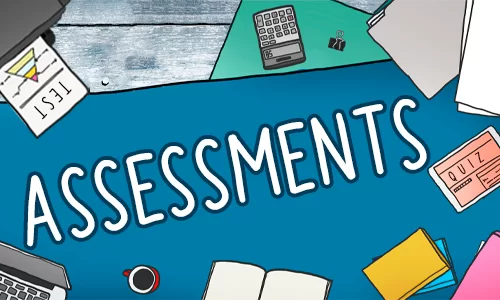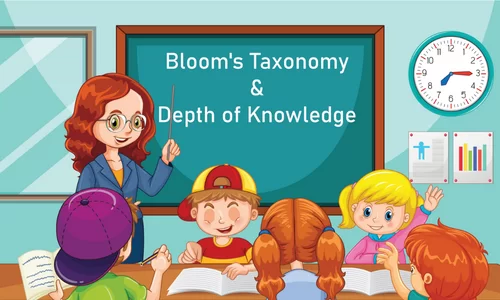How do we assess a student’s progress when they are learning? How do teachers understand where students lack or lag?
Well, this is why we have assessments.
Assessments do not imply only tests. There are various ways for educators to analyze the learning standpoints of students and gauge their growth.
What are Assessments?
The book Learner-Centered Assessment on College Campuses: shifting the focus from teaching to learning by Huba and Freed 2000, explains assessment as:
Assessment is the process of gathering and discussing information from multiple and diverse sources to develop a deep understanding of what students know, understand, and can do with their knowledge as a result of their educational experiences; the process culminates when assessment results are used to improve subsequent learning.
Assessments Vs. Tests
There is a broad range of differences between assessing and testing a student.

Types of Assessments: Online and Offline
As instruction methods have turned online, teachers can also assess students online by leveraging the benefits of technology. There are many applications and tools available to help teachers assess students. For example, teachers can create online quizzes, game-based questions, open/close-ended questions, fill-in-the-blanks, drag-and-drop questions, polls, and so on.
Online assessments help teachers check the answer accuracy and deliver results in real-time in a shorter timeframe.



On the other hand, offline assessments are done in schools or any other physical location.
Offline assessments use pen, paper, and the physical presence of students and teachers in the classrooms.
Why are Online Assessments better than Offline Assessments?
There has always been a comparison between online and offline assessments, with one being convenient for some and inconvenient for others. Let’s understand how assessments in the online mode fare better than offline mode:
- Creating Multiple copies
Online assessments are easier to copy and send to all the students. There is no need for the teachers to make separate prints for individual students, unlike offline assessments.
- Flexibility in conducting assessments
Teachers can create and conduct online assessments from anywhere; they only need a computer and an internet connection. On the other hand, offline assessments are less flexible, as they usually require teachers to be physically present.
- Speed of Evaluation
Online assessments are easier to evaluate since artificial intelligence can help us analyze the correct answers and the results of the students in the class.

Offline assessments, on the other hand, require the teacher to mark all the individual tests on her own, which is time-consuming. It can contribute to teacher fatigue and delayed results.
- Record Keeping
When teachers conduct online assessments, they are not worried about where to store the information and care less about losing papers. One of the biggest benefits of conducting online assessments is having an organized record of everything. Teachers can keep records of individual students and their results and analyses using appropriate learning management systems and test tools.
However, when conducting assessments offline, teachers often use papers that have to be organized manually and stored.
Offline Assessments also have Benefits
While there is skewed support for online assessments, one cannot overlook how offline assessments beat the technology product in specific ways.
- Human Touch
In a classroom test, a teacher can assess whether a student understands a concept but got the answer wrong. In this case, a teacher can give some score to the student for using the correct process and not entirely failing the students’ answers.
However, this is not possible with online assessments, since students only submit their answers online, and the process of deriving the answer cannot be shown.
- Writing speed
Students may be fast at writing an answer, but not as fast as a bullet when using a keyboard. For some students, essay-type questions can be harder to complete when given online assessments, whereas students can work on their writing using pen and paper because it is easily accessible and every student can afford to get one. It is not easy for every student to get a computer system in their home so they can practice typing on the keyboard.

- Smooth Discussions
In a physical classroom, teachers can assess students based on their behavior and class response. They can talk more freely, and the teacher can even go close to the students and explain concepts to them.

It is challenging to interact with students in an online setting. Students may not feel the presence of their peers, so it would derive less of a feeling of a class for them. They may not feel interested in responding to the teacher, and their assessment score on class responses can go down.
Taking Blended Learning to the next level
Teachers can teach online and offline in a hybrid mode. They can teach using online tools in an offline location, which is also referred to as blended learning.
The teachers can also use the idea of blended learning and conduct assessments in different ways as there are various types of assessments. It can be a blend of fewer assessments being offline and the rest being online.
Teachers can plan their assessment types for different periods and curate which tests are more suitable when taken online or offline. For example, essay questions can be conducted offline during the summative assessment. In contrast, fill-in-the-blanks and gamified tests can be conducted online after every lesson is completed in the form of a formative assessment.















